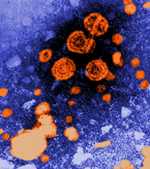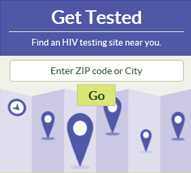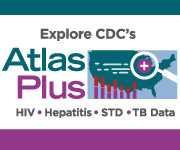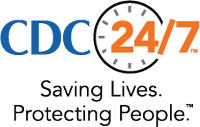For Your Health: Recommendations for A Healthier You
Just like all other men, gay, bisexual, and other men who have sex with men need to know how to protect their health throughout their life. For all men, heart disease and cancer are the leading causes of death. However, compared to other men, gay, bisexual and other men who have sex with men are additionally affected by:
- Higher rates of HIV and other sexually transmitted diseases (STDs);
- Tobacco and drug use;
- Depression.
There are many reasons why gay, bisexual, and other men who have sex with men may have higher rates of HIV and STDs. Some of them are:
- Prevalence of HIV among sexual partners of gay, bisexual, and other men who have sex with men is 40 times that of sexual partners of heterosexual men;
- Receptive anal sex is 18 times more risky for HIV acquisition than receptive vaginal sex;
- Gay, bisexual, and other men who have sex with men on average have a greater number of lifetime sexual partners.
Other factors that can negatively impact your health and ability to receive appropriate care:
- Homophobia;
- Stigma (negative and usually unfair beliefs);
- Discrimination (unfairly treating a person or group of people differently);
- Lack of access to culturally- and orientation-appropriate medical and support services;
- Heightened concerns about confidentiality;
- Fear of losing your job;
- Fear of talking about your sexual practices or orientation.
These reasons and others may prevent you from seeking testing, prevention and treatment services, and support from friends and family.
In fact, gay, bisexual, and other men who have sex with men make up more than half of the people living with HIV in the United States and experience two thirds of all new HIV infections each year. Further, young gay, bisexual, and other men who have sex with men 13-24 had over 72% of the estimated new HIV infections in 2010. In 2012, 75% of reported syphilis cases were among gay and bisexual men.
The large percentage of gay, bisexual, and other men who have sex with men who have HIV and STDs means that, as a group, they have a higher chance of being exposed to these diseases. Too many men don’t know their HIV or STD status (if they have a disease or not), which means they may not get medical care and are more likely to unknowingly spread these diseases to their sexual partners.
Most gay, bisexual, and other men who have sex with men get HIV by having anal sex, which is the riskiest type of sex for getting or spreading HIV. During anal sex, it’s possible for either partner—the insertive (top) or the receptive (bottom) to get HIV. However, if you are HIV-negative, bottoming without a condom puts you at much greater risk for getting HIV than topping. If you are HIV-positive, being on the top without a condom is riskier for giving HIV to your partner.
Top of PageWhich tests are recommended to help ensure the sexual health of gay and bisexual men?
Your sexual health is important. There are a number of tests you can get to help you know your status and, if you have HIV or an STD, get treatment.
All sexually active gay and bisexual men should be tested regularly for STDs. The only way to know your STD status is to get tested (you can search for a testing site). Having an STD (like gonorrhea) makes it easier to get HIV or give it to others, so it’s important that you get tested to protect your health and the health of your partner. CDC recommends sexually active gay, bisexual, and other men who have sex with men test for:
- HIV (at least once a year);
- Syphilis;
- Hepatitis B;
- Hepatitis C if you were born between 1945 to 1965 or with risk behaviors (see “how is hepatitis C spread”);
- Chlamydia and gonorrhea of the rectum if you’ve had receptive anal sex or been a “bottom” in the past year;
- Chlamydia and gonorrhea of the penis (urethra) if you have had insertive anal sex (been on the “top”) or received oral sex in the past year; and
- Gonorrhea of the throat if you’ve given oral sex (your mouth on your partner’s penis, vagina, or anus) in the past year.
Sometimes your doctor or health care provider may suggest a herpes blood test. If you have more than one partner or have had casual sex with people you don’t know, you should be screened more often for STDs and may benefit from getting tested for HIV more often (for example, every 3 to 6 months). Your doctor can offer you the best care if you discuss your sexual history openly. Talk with your doctor about getting vaccinations for Hepatitis A and B, and HPV.
You should have a doctor or provider you are comfortable with. CDC’s Lesbian, Gay, Bisexual and Transgender Health Services page has resources that can help you find health care providers that are skilled in providing health services to gay and bisexual men. If you have HIV, the Treatment Works-Get In Care page also has useful information.
Top of PageWhich vaccinations does CDC recommend for gay and bisexual men?
There are a number of vaccines that can help to protect your health.
Hepatitis
- Hepatitis A and Hepatitis B vaccinations
- Two doses of the Hepatitis A vaccine are needed for lasting protection and the doses should be given at least six months apart.
- A series of three doses of the Hepatitis B vaccine are usually given providing long-lasting protection.
- There is also a combination vaccine for both Hepatitis A and Hepatitis B. It is usually given as a series of three doses in order to provide lasting protection.
Flu
- Seasonal flu
- The vaccine is a single dose shot given before the start of the flu season in the fall.
Human papillomavirus (HPV)
The human papillomavirus (HPV) vaccine is also available for gay, bisexual, and other men who have sex with men up to 26 years of age to prevent genital warts and other HPV-associated diseases and conditions such as oropharyngeal or anal cancer. The HPV vaccine is given as a three-dose series over six months. It is best to be vaccinated before your first sexual contact, but later vaccination can still protect you if you have not been exposed to HPV.
Top of PageHow do I lower my risk for STDs?
You can do many things to protect your health. You can learn about how STDs are spread and how you can reduce your chances of getting an STD.
- Talk honestly with your partner about STDs and getting tested—before you have sex.
- Use a condom correctly and use one every time you have sex.
- Think twice about mixing alcohol and/or drugs with sex. They can lower your ability to make good decisions and can lead to risky behavior—like having sex without a condom.
- Limit your number of sexual partners. You can lower your chances of getting STDs if you only have sex with one person who only has sex with you.
- To find out more about lowering your chances of getting HIV, please go to the HIV section of this website.
What other steps can I take to protect my health?
- Maintain mental health. Pay attention to your mental health and outlook. Seek counseling if you have persistent negative feelings about yourself or your health.
- PrEP/PEP. Talk with your health care provider about whether PrEP or PEP are appropriate for you based on your HIV status and sexual practices.
- Adhere to taking HIV medications. If you have HIV, work with your health care provider to ensure that you are taking the right medications the right way.
- Eat a healthy diet. Choosing healthy meal and snack options can help you avoid heart disease and its complications.
- Maintain a healthy weight. To know whether your weight is in a healthy range, doctors often calculate a number called the body mass index (BMI). If you know your weight and height, you can calculate your BMI at CDC’s Assessing Your Weight website. Or visit CDC’s Healthy Weight website.
- Exercise regularly. Exercise can help you maintain a healthy weight and lower cholesterol and blood pressure. Visit CDC’s Physical Activity site.
- Don’t smoke. Cigarette smoking makes your chances of getting heart disease, cancer, and stroke much higher. If you have HIV, smoking also weakens your immune system and can raise your chances of getting tuberculosis (TB), if you come into contact with someone who with TB. So, if you don’t smoke, don’t start. If you do smoke, quitting will lower your chances of getting or having many medical problems. Visit CDC’s Smoking and Tobacco website.
- Limit alcohol use. Avoid drinking too much alcohol, which can cause many health problems (high blood pressure or cancer, for example) and raise your chances of getting injured or participating in risky behaviors. Visit CDC’s Alcohol and Public Health website.
- Cholesterol screenings. The National Cholesterol Education Program recommends that adults who are 20 years of age or older have their cholesterol checked every five years.
- Cancer screenings. Ask your health care provider for information on screening for prostate, testicular, colon, oral, and anal cancers.
- Check your blood pressure. Getting your blood pressure checked is important because high blood pressure often has no symptoms.
- Get checkups. Ask your doctor or nurse how you can lower your chances for health problems.
How Do I Learn More?
- Talk to your health care provider.
- Call your local or state health department or contact an LGBT Health Clinic.
- Contact CDC at 800-232-4636 (800-CDC-INFO) or cdcinfo@cdc.gov.
Related Information
- CDC Men’s Health Website
- 10 Things Gay Men Should Discuss with their Health Care Providers – GLMA
- LGBT Health Clinics and Services
- Medline Plus: Gay, Lesbian, Bisexual and Transgender Health
- PFLAG – Parents, Families, Friends and Loved Ones of Lesbians and Gays
- National Resource Center on LGBT Aging
- HHS.gov LGBT Access to Healthcare
- Prevention through Healthcare:HIV, Hepatitis, STD, and TB Preventive Services Covered Without Cost-Sharing
- Page last reviewed: February 29, 2016
- Page last updated: January 25, 2017
- Content source:


 ShareCompartir
ShareCompartir





